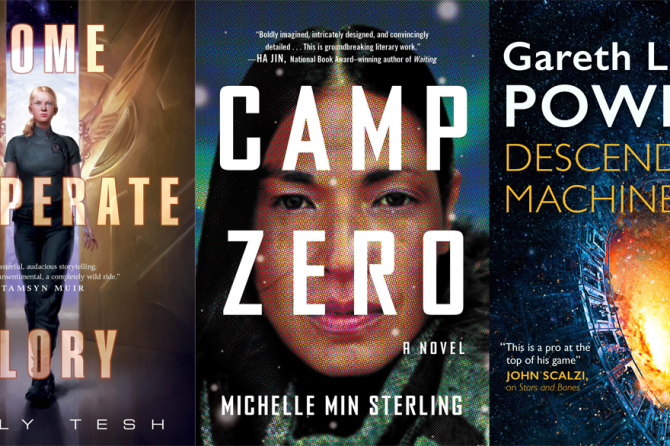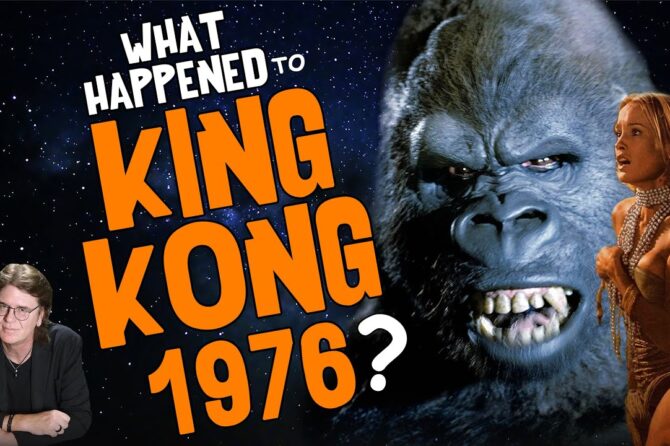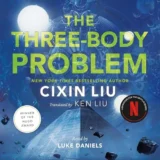
OBIR: Occasional Biased and Ignorant Reviews reflecting this reader’s opinion.

FUSION FRAGMENT #7 – July 2021.
Publisher: Fusion Fragment, Ottawa, Ontario, Canada.
Editor: Cavin Terrill
Cover Art: Carly Allen-Fletcher
FICTION:
It Begins in the Garden – by Maria Haskins
Premise:
Two twelve-year-old girls grow very fond of the ladybugs they find in a garden. The ladybugs grow very fond of them.
Review:
On the one hand, this story is about the perils of growing up in a world where Grandmothers fade away from being sources of joy and comfort, and newborn siblings disrupt the proper order of parental affection and stir unprecedented hints of jealousy. In other words, a story based on reality. Can’t call it a metaphoric because the meaning is plain to see and charming in its inevitability. Something that most children experience.
And on the other hand (assuming only two involved), this is a quiet, peaceful, yet somehow sinister example of contact with aliens unrecognized as such but very, very successful from the aliens point of view. Assuming a near magical level of technology, this is a very logical approach to a common alien conundrum, at least, common from the human science fiction literature perspective. Logical, and original. The goal isn’t, but the method is unusually low key and to my way of thinking, subtle and virtually guaranteed to succeed. All aliens have to do is be taken for granted as something worth having. Makes sense to me.
I’m trying not to reveal too much beyond the fact the story is a pleasure to read. Has a nice, quiet kicker of an ending, too. Remarkable.
Proof, if you ever needed it, that a story doesn’t have to have non-stop violence and action to impact the reader. This quiet piece leaves a lasting impression. And gives me yet another excuse not to take up gardening.
Sister Martin of the Stars – by Heather Clitheroe
Premise:
A routine mission, till a piece of space rock punches through the engine room, crew quarters and passenger quarters leaving only two crew members and two nuns alive. Propulsion and communication now impossible. Only enough resources left to last a short period. The mission would seem in doubt.
Review:
Ordinarily this sort of survival problem is resolved by an especially able radio specialist who knows how to jury rig a useful gizmo out of frozen food, or by a gifted (and possibly Scottish) engineer who’s always wanted to framulate the fifth dimension so why not give it a try?
However, this story revolves around Sister Martin. She does have a hidden power. She’s a professional astronomer who can work wonders with the telescope fixed to the outside of the hull, though not, unfortunately, the sort of wonder the survivors need. So, what to do?
Ponder the problem, of course, from a religious and/or philosophical perspective. I am vaguely reminded of the writings of Boethius, a classically trained yet Christian philosopher born just after the fall of the Western Roman Empire. He rose to become Consul to Theodoric the Ostrogoth, but from his readings he knew it wasn’t a patch on the good old days. His writings, like the musings of Sister Martin, were similarly rife with thoughts of enlightened despair. Is this a source of comfort when faced with death? It was for him. Perhaps for her.
As a lifelong SF fan who prefers concept-driven stories with tidy, ingenious solutions I can’t say I found the ending of this story satisfactory to my tastes. However, I recognize the solution to the problem is largely irrelevant to the purpose of this tale. It’s really all about facing and coping with the ultimate reality of everyone’s life, namely the imminent prospect of death. Come to think of it, the story is about you. Which is why you should read it. Because sooner or later, if you are granted the time, you will be contemplating the same problem. This is a good opportunity to pick up some pointers.
Wesley Evonshire – by Matt Cahill
Premise:
Miss Kent teaches a writing at the high school where she works. Mostly a fruitless task, dealing with mediocrities, but occasionally a blossoming talent makes it all worth while. But then there’s Wesley, an untalented boy and possibly a stupid one. He begins to pall.
Review:
A friend of mine, a professional teacher, early in his career lost his temper with an out-of-control student who persisted in disrupting his class. The boy fled in tears. Only later did my friend learn the boy’s mother was dying of cancer and had not long to live. It was a lesson my friend never forgot. Sometimes there are tragic roots behind apparent misbehaviour.
In this story the boy in question isn’t so much misbehaving as unfocused and inept. Miss Kent tries her best but eventually gives up, even eventually deriving pleasure from devising subtle tactics of ignoring him. (An interesting insight into teacher misbehaviour?) But then it turns out Wesley has deliberately thwarted her teaching in a spectacular, unforgivable manner. Time to teach him a lesson he’ll never forget. This turns out to be a tactical error.
This begins calmly enough but evolves into a straightforward, almost Lovecraftian horror story with mild SF elements. It’s quite effective as such, but the real horror lies in the teacher-pupil relationship which is more in the psychological vein. I feel that aspect should have remained front and centre and that it gets a bit lost in the second half of the story which is more robust and rambunctious than the first half. Other readers may see it opposite to my view, not fully appreciating it till the action kicks in. Nevertheless, overall entertaining and fun to read. I can easily picture it worthy of being filmed for a horror anthology TV series.
Sainte-Noyale – by Ranylt Richildis
Premise:
The town of Sainte-Noyale is world famous for its jam, and for the fact the town, thanks to its jam factory, always smells of strawberries. Every year the annual jam festival draws more and more delighted tourists. Sixty-six-years-old Croteau is the town curmudgeon. He hates the jam, the jam factory, the English-speaking tourists, and above all the annual festival. This year he resolves to take action.
Review:
This makes me think of Stephen Leacock’s Sunshine Sketches of a Little Town first published in 1912. There’s plot and action to be sure, but the real charm is the evocation of eccentric characters enjoying small town life. In this case I’d say the festival is the main character, and Croteau a close second. But it’s the ambience, the background, the scene setting, which makes the reader want to run to the kitchen to spread exotic jam on toast. A paean to jam this is, or rather, to life centred on jam. It’s a charming story, warm and nostalgic, with a hint of horror.
Croteau is a jerk, of course, and definitely a crank, but you can’t help feeling sorry for him. The whole town, its economy, its customs, the very smell in the air, is designed to keep his teeth perpetually on edge. All things considered, despite his constant gripes and complaints, he’s a very patient man, biding his time and always true to his obsessions. His neighbours are remarkably patient with him. Little do they know.
I could comment on his scheme, and compare it to the real life escapades of certain cranks in the news in recent years, but that would give away too much. Suffice to say, once a crank, always a crank, for all that accomplishes. It’s not often that a villain’s triumph enhances the nostalgic charm of a story. Unusual, to say the least. I like this story.
Soulmark – by Brandon Crilly
Premise:
If you are an incredibly wealthy, incredibly popular rock star who truly enjoys performing as often as possible, what else could you possibly want? What would you be willing to sell your soul for? This story contemplates that question.
Review:
Deals with the Devil stories are so common and cliché-ridden that they tend to fall into the automatic rejection pile when submitted to editors. They’re right up there with “and the man and woman survivors exploring the prehistoric planet turned out to be named Adam and Eve.”
Unless, of course, the story has an original approach, as this one does. No Devil involved here, just licensed dealers. They’re not quite human, but exactly what they are nobody knows. Not a topic of conversation the dealers care to indulge in. At least they follow a set of rules. It’s possible to be quite rational and logical in deciding whether or not to make a deal. They seldom cheat. It’s just that when you close the deal and receive your unique tattoo, they tell you precisely when you will die and thus when they will collect. Mind you, this makes planning ahead a piece of cake. But for those who’ve invested in your talents, your secret pop-off date can be annoying. Not to mention frustrating. Makes it difficult for them to plan ahead.
The story is told from the perspective of Vicky, an unusually strong woman bodyguard, who has her hands full, literally, protecting rockstar Lee Garrison from his overenthusiastic fans. Concerts are bad enough. Keeping tabs on him the rest of the time to ensure he doesn’t sneak out and find a dealer when everyone’s back is turned is a full-time job. Trouble is, giving in to temptation is generally the principal hobby of most rockstars. Vicky is close to burnout.
The story is suitably dark and seedy, and the negotiations with and among dealers are extremely interesting. A number of the pros and cons pf making supernatural deals are explored. This is another story you can take up pointers from. Hmm, this story, which offers a “balanced” view, makes me think selling my soul is an option that isn’t necessarily out of the question. After all, I do want to get my novel published …
Shake the Disease – by Tiffany Morris
Premise:
Quin is not enjoying the nightclub. She’s dead drunk, frantically unhappy, and desperately wants to leave. But a young couple has selected her for a video performance. They won’t let her leave.
Review:
Actually it’s more complicated than that. A lot more complicated. There are layers of complication that are eventually pulled back to reveal at least a hint of what is actually happening. Rather like Dante’s Inferno, in terms of one hellish situation leading to another. Is there any hope? Any salvation? The possibility is implied. But first, more suffering, more confusion, more fear. The couple are not what they first seem. But then, neither is Quin.
I am reminded of the Savak torture victim who, upon release, staggered home in the dark pounding his head as he cried out over and over “Why was I ever born? Why was I ever born?” Unendurable suffering makes life unbearable. This is that kind of horror story. Dark and bitter.
If you like powerful, hard hitting horror, this story is for you. Part of its strength comes from the description of Quin’s drunken state. I’ve been that drunk. I can relate. I no longer drink. This account of Quin’s utter helplessness is a good explanation of why I chose to quit. A visceral explanation.
It also demonstrates why I now avoid nightclubs. (Mind you, the fact that I’m 70 years-old plays a part.) You never know whom you’re going to run into. Meeting evil strangers is difficult enough when you’re sober. Being dead drunk … well, there’s a reason why they term it “dead drunk.”
But I digress. This story will creep you out. An excellent taste of horror.
Live from Katahdin Hills – by Derek Nason
Premise:
In a post-apocalyptic world Lori spends all her time protecting her older brother Jacobi. Every other survivor is concentrating on surviving. He just wants to be happy. Fortunately, there seems to be an endless supply of granola bars in her bag.
Review:
Taken literally, this is a bizarre, surreal world. Most sentient beings appear to be trees, and they ignore humans. But the few humans scattered about enjoy terrorizing each other, and especially innocents like Jacobi. If it wasn’t for her dreams, Lori couldn’t cope. If only she could share her dreams. Make Jacobi even happier.
I gather the story is a metaphor for the difficult life of someone with extreme autism or some similar situation. Jacobi is perfectly content by himself, spending 100% of his waking time listening to music on his headphones, but can’t attend to his basic needs. Lori, being a loving relative, is more than happy to help, but at a distance, since getting too close would disrupt and possibly even threaten his self-contained world. The majority of people simply ignore him. They might as well be trees, or rocks. But some like to be mean, perfectly willing to say or do the wrong thing, especially if it upsets Jacobi. Consequently Lori must always be vigilant, and prepared to pay any price never to falter. Not an easy life for her. But at least she has purpose.
The story isn’t static. There are a couple of threats amounting to severe danger. One of the truths revealed by these struggles is that so-called “mentally handy capped” people are capable of extraordinary levels of empathy and emotional bonding than what many people expect. I’ve witnessed this myself, as I have known several Down Syndrome people in my lifetime. They appreciate emotional honesty. They’re not fans of the kind of masks the majority of us habitually wear.
To sum up, a fascinating, insightful, and important glimpse into the reality of those deemed less fortunate. A learning experience. A useful lesson. And darn good writing.
Wednesday’s Child – by C. J. Lavigne
Premise:
The aliens landed. The protagonist went to fight them. Now he or she is pregnant by them and has special privileges which most people resent. But everything is going to be just fine.
Review:
As usual, I am put in mind of a somewhat equivalent real life situation. Young people with Aids loving in Cuban government palliative care hospices were permitted to listen to whatever forbidden music they wanted, as well as to express themselves freely. As soon as word got around a number of youths deliberately acquired Aids in order to (briefly) live life the way they wanted to. I think there’s a documentary film or two about these wards.
Even more horrific, one of the Nazi concentration camps offered a month of normal living, replete with comfy beds, clean clothes, excellent food, and total freedom from harassment. The kicker was that at the end of the month you were killed, and you knew this from the get go. Nevertheless, more people applied than could be accepted. It was some sort of hideous psychological experiment. I seem to remember a film based on this practice. Possibly a TV special. My memory not good enough to remember when I saw it.
The question is, what would you chose if faced with the prospect of a luxurious, pampered lifestyle for a few pleasant months ending in certain death, your only other choice being poverty-ridden, malnourished misery rotting your life away such that death comes as a blessing? If you are any sort of news junkie at all, you are aware there are many people in this world who would be delighted to be given the choice.
What’s interesting about the protagonist’s decision is the psychological meanderings he or she goes through in order to cope with the situation. Not to mention the tactics employed to bond with the baby still in the “womb” in the hope that the baby will reciprocate the bond once “born.” What with resisting human instincts and impulses being replaced with alien versions as the fetus matures, and being determined to look on the positive side of things, the parent’s increasingly insistent bouts of rationalization and wishful thinking elevating denial to a fine art are grimly fascinating. Talk about internalized horror.
As for the aliens themselves, the story takes them for granted. They are merely part of the background ambience and are never actually seen. All that is “visible” are the measures taken to ensure the comfort of the hosts. There is a slight element of humour whenever the aliens attempt to provide whatever the hosts request, be it a million dollars in cash or a Fabergé Egg, but mostly they’re just an incomprehensible presence which cannot be ignored. Evil indeed. But for biological reasons. They too, evidently, take themselves for granted and see no need to be flashy about it.
This is a more visceral approach to contemplating one’s death than was evident in the philosophical Sister Martin of the Stars, and a decidedly less pleasant conquest than featured in the charming It Begins in the Garden. It’s a horror story that grows on you as surely as the alien fetus swells in its host.
Come to think of it, just as women who enjoy showers should probably never watch the movie Psycho, any woman who is pregnant might want to put off reading this story till after their child is born. It is definitely the stuff of nightmares. Impressively so.
CONCLUSION:
Have to admit, all of the stories in this issue are better than anything I can write. But I’m not depressed over this. In fact I am inspired. These are excellent stories that set the bar. I would be quite pleased to come anywhere close to the quality of these works. Every single one of them lingers after you finish reading. They are that impactful.
Check it out at: < Fusion Fragment #7 >









